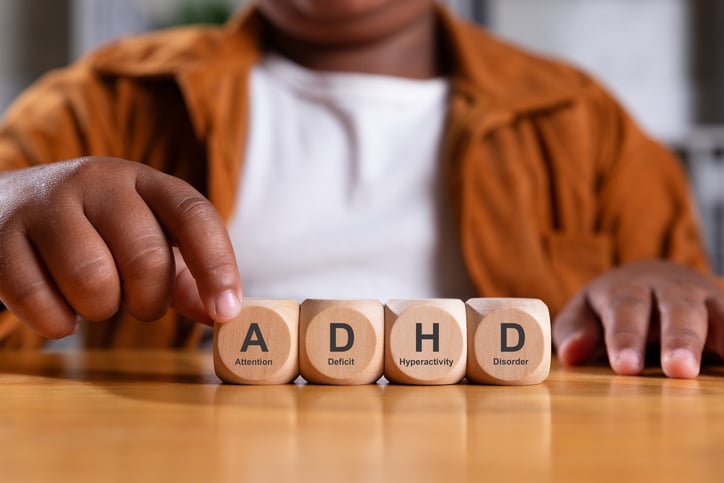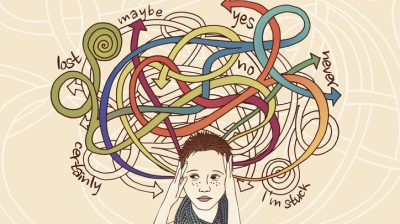How can I get an ADHD assessment?
Find out how to access an ADHD assessment through public and private pathways.

If you think you or someone you care about may have ADHD symptoms, it can be challenging to know where to begin. This article provides current information on how to access an ADHD assessment through both public and private healthcare pathways.
This article covers:
Why people look for an ADHD assessment
How to get an ADHD assessment when you’re under 18
How to get an ADHD assessment when you’re over 18
What to expect during the assessment process
Alternatively, you may like to read about the signs and symptoms of ADHD or ADHD treatments.
Should I seek an ADHD assessment?
Existing research tends to focus on the effects of leaving diagnosed ADHD untreated. Less research has looked at the impacts of having ADHD symptoms and not receiving an ADHD diagnosis. It’s therefore unclear whether getting a diagnosis of ADHD benefits everyone equally. The main disadvantage of living with undiagnosed ADHD is not receiving any treatment for ADHD symptoms, which could be making day-to-day life more difficult.
People with ADHD symptoms that aren’t severe enough for a diagnosis can still benefit from using coping strategies designed for people with ADHD. Read more about ADHD tips and coping techniques.
Not everyone chooses to pursue a formal ADHD diagnosis, and for some, this decision is equally valid. Below are some reasons why you might opt not to go the route of an assessment or diagnosis:
- You may not know where to get an assessment or are confused about the assessment process
- The waitlist for public health assessments may be too long and the cost for a private assessment may be too high
- The diagnosis may not relieve the stress associated with your ADHD symptoms
- You may be afraid of how people will treat you if you tell them about the diagnosis
- You may have seen people express negative attitudes towards ADHD, viewing it as an “excuse” for certain behavioural, emotional, or social struggles
- You may be afraid of losing your identity in the presence of a diagnosis or label
- You may feel less in control of your own life when faced with the prospect of taking medication or relying on specific coping strategies for the long haul
- You may worry about feeling isolated or different after receiving the diagnosis
- You might already have strategies to effectively manage your symptoms and feel like you don’t need the diagnosis
ADHD and burnout
Some people have developed coping strategies to manage their suspected ADHD symptoms without a clinical diagnosis. When symptoms are mild or can be managed without causing any personal distress, you may prefer not to seek a diagnosis or put a label on what you’re experiencing.
However, if your symptoms are taking a toll on you, getting an ADHD assessment and diagnosis may be helpful. Having an explanation for your symptoms could relieve some stress and give you access to the appropriate services and treatment. Getting the correct diagnosis can also reduce the pressure to mask your symptoms, which can contribute to chronic stress and increase your risk of burnout.
Having a formal diagnosis of ADHD can help explain why your brain works differently compared to others. This may be a huge relief if you have spent years blaming yourself for not being able to meet certain expectations. A diagnosis can also help you make sense of some of your past decisions and challenges you might have faced. With a diagnosis, you are more likely to have the opportunity to discuss the appropriate treatment options with a doctor or qualified professional. With access to the right medical or therapeutic service, a person with ADHD may experience an improved quality of life.
Getting an ADHD assessment when you’re under 18
If you’re under 18, you will need the support of a guardian or teacher to get an ADHD diagnosis. In general, three are three possible routes for diagnosis:
- Your GP may publicly refer you to CAMHS for ADHD assessment and diagnosis
- Your guardian(s) and teachers can help you to get evaluated by a psychologist from the National Educational Psychological Service (NEPS) or a psychologist approved to carry out assessments under the Scheme for Commissioning Psychological Assessments (SCPA)
- Your guardian(s) can support you to get a private assessment from a psychologist, psychiatrist or paediatrician with experience managing and diagnosing ADHD. Keep in mind that there can be barriers to accessing private assessments, including cost. Going the private route is not affordable for everyone
Getting an ADHD assessment through CAMHS
Your GP can refer you to a specialist service like CAMHS for assessment if it’s needed. Waiting times for ADHD assessment and treatment can be lengthy, and not all CAMHS teams have a specialised ADHD service.
ADMiRE is the first early access ADHD specialist service for young people in Ireland, ADMiRE clinicians can assess, diagnose, and offer tailored treatment plans to young people who might have ADHD. This service is available to those referred to CAMHS teams in Ballyfermot, Lucan, and Clondalkin.
If the ADMiRE service offers you treatment, your local CAMHS team will keep an eye on how you’re doing. If you find you are having difficulties with your medication or any part of your treatment plan, an ADMiRE clinician can speak with the CAMHS team to determine the best way to support you using evidence-based protocols.
Visit the HSE website for more information on Linn Dara CAMHS and the ADMiRE service.
Getting an ADHD assessment through your school
If you think you are experiencing ADHD symptoms that are making it difficult for you to perform at school, speaking to a guardian or class teacher about the possibility of an educational psychological assessment could help.
If you, a guardian, and teachers are in agreement that you may benefit from additional support, your school principal can refer you to a NEPS psychologist for an assessment. In the event that your school does not have access to NEPS, they may be able to hire a psychologist who has been approved to provide the same assessment under the Scheme for Commissioning Psychological Assessments (SCPA). In both cases, the Department of Education covers the cost, so you or your family won’t have to pay anything.
You, your guardian(s) and teachers should receive a report of the findings after the assessment. This report will indicate whether you have been diagnosed with ADHD and what level of support you might need. If you need additional educational support, they may work with you to create an Individual Education Plan with your school and guardian(s). This plan will track your strengths and challenges, helping you to reach your full potential.
The National Council for Special Education (NCSE) is responsible for providing extra resources, if necessary, through their network of Special Education Needs Organisers (SENO). You can find the contact details of your local SENO on the NCSE’s website.
Getting an ADHD assessment through a private clinician
If you’re experiencing delays in getting an educational psychological assessment or facing long waiting times with CAMHS, you and your guardian(s) may opt for a private assessment. Unlike assessments from NEPS or SCPA, the state does not cover private assessments, but your guardian(s) may be able to claim tax relief on medical expenses the following year.
When selecting a private clinic or practitioner, here are some key considerations to keep in mind:
- Check that your clinician is properly trained and experienced in managing and diagnosing ADHD in young people. ADHD Ireland provides a list of qualified clinicians for ADHD diagnosis and treatment
- If you receive an ADHD diagnosis and you’re considering medication as part of your plan to manage your symptoms, remember that psychologists, psychiatrists, and paediatricians can diagnose ADHD in children and adolescents, but only psychiatrists can prescribe medication
Getting an ADHD assessment when you’re over 18
If you’re 18 or older and think you might have ADHD, your GP is a good first point of contact.
National Clinical Programme for ADHD in Adults
Though your GP cannot formally diagnose you with ADHD, they can refer you to your local Community Adult Mental Health Team (CAMHT). Within your CAMHT, you will be assessed for ADHD and other possible conditions. If ADHD is identified, you may be referred to a nearby adult ADHD clinic based on where you live.
To check whether you fall within the catchment area of an ADHD Team, visit the HSE website.
If you do not have access to an Adult ADHD Team based on where you live, you can still ask your GP for a referral to your local CAMHT, who can provide diagnosis and treatment of ADHD.
Whether or not you have a diagnosis, if you’re experiencing symptoms that might be related to ADHD, you can download the Adult ADHD app. Developed by the HSE’s National Clinical Programme for Adults in partnership with ADHD Ireland and the UCD School of Psychology, this digital tool offers more information on how to navigate assessment, self-care and treatment.
Transitioning from CAMHS to CAMHT with ADHD
If you’re transitioning from Child and Adolescent Mental Health Services (CAMHS) to a CAMHT, your referral process will be slightly different. About one year before you turn 18, you’ll undergo a re-evaluation for ADHD. Based on the assessment results, your local Adult Mental Health Team and ADHD clinic will make a joint decision about which service is best for you.
If you’re diagnosed with ADHD along with significant mental health issues, you may be referred to Community Adult Mental Health Services. However, if there are no significant mental health issues, you are more likely to be referred directly to an Adult ADHD clinic.
Getting an ADHD assessment through a private clinician
Public referrals through your GP typically involve long waiting lists. Alternatively, you may opt to be assessed by a private service or clinician with shorter waiting times. In such cases, it may be helpful to review the list of qualified clinicians provided by ADHD Ireland.
When selecting a private clinic or practitioner, here are some key considerations to keep in mind:
- Check that your clinician is properly trained and experienced in managing and diagnosing ADHD in adults. ADHD Ireland provides a list of qualified clinicians for ADHD diagnosis and treatment
- Psychologists, psychiatrists, and paediatricians can diagnose ADHD in children and adolescents. However, only psychiatrists can prescribe medication
What to expect during the assessment process
Regardless of which route you follow in getting your diagnosis, the assessment process should be similar. It typically starts with a clinical interview conducted by a qualified professional. During this interview, they will ask questions to build a case history. This case study typically covers when your symptoms began, how long they’ve lasted, and how they affect your daily life. Often, the professional will also speak with a parent or sibling, even if you’re over 18. Generally, they do so to understand the impact of your symptoms throughout the course of your life.
Most assessments will also involve filling out questionnaires. In these questionnaires, you will answer more detailed questions about your symptoms and behaviours. Psychologists often assess your cognitive functioning (e.g., memory and attention skills) as part of the assessment.
This formal process can feel lengthy and intimidating. However, it’s important to remember that extra care is necessary to ensure that you receive the correct diagnosis. Gathering information through interviews, questionnaires and a detailed case history is important. It helps determine whether you meet the diagnostic criteria for ADHD and ensures that you will receive the best possible care and treatment.
Feeling overwhelmed and want to talk to someone?
- Get anonymous support 24/7 with our text message support service
- Connect with a trained volunteer who will listen to you, and help you to move forward feeling better
- Whatsapp us now or free-text SPUNOUT to 50808 to begin.
- Find out more about our text message support service
If you are a customer of the 48 or An Post network or cannot get through using the ‘50808’ short code please text HELLO to 086 1800 280 (standard message rates may apply). Some smaller networks do not support short codes like ‘50808’.






